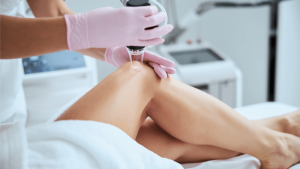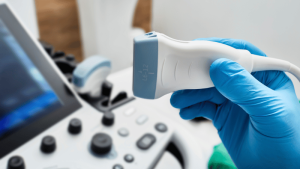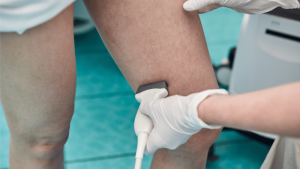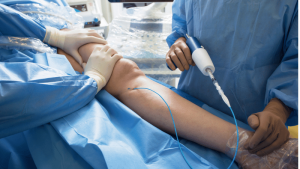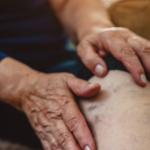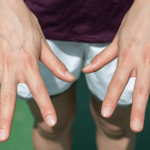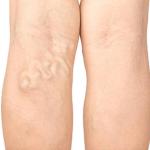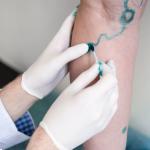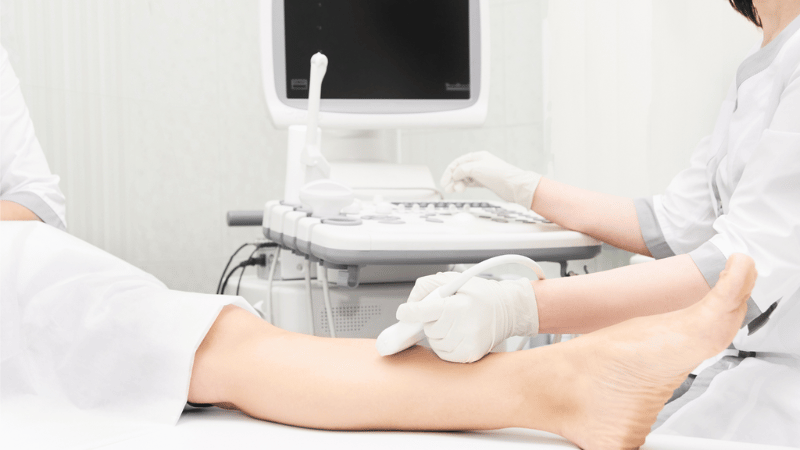
Every year, approximately 150,000 new patients are diagnosed with chronic venous insufficiency (CVI) in the United States, and an estimated 30 million Americans have the disease.
When left untreated, CVI, also known as vein disease, can lead to throbbing pain in the legs, itching skin, swelling, and venous ulcers. It also increases your risk of developing dangerous complications such as deep vein thrombosis (DVT). That’s why vein health check-ups are so important. During a vein screening exam, a vein specialist can identify signs of CVI or other vein issues early so you avoid more serious problems.
At USA Vein Clinics, our vein doctors use advanced imaging technology including ultrasound mapping to check for signs of CVI. We offer expert assessments in state-of-the-art facilities across the country, making it easy to be proactive about your vein health.
Reasons to Schedule a Vein Screening
Regular vein assessments are the foundation of long-term vein and vascular health. A specialist can ensure you’re taking the right steps to sit for hours a day to protect your veins from damage, whether you have signs of a problem or are at a higher risk for vein disease and blood clots. Here are 11 reasons why you might want to schedule a vein screening soon.
1. Family History
Vein disease is hereditary, which means, if you have a close family member with blood clots or varicose veins — a common symptom of CVI — you are more at risk for vein disease.
2. Over 50 Years of Age
Problems with venous insufficiency can develop in your 30s or 40s, or even earlier. However, most cases of vein disease impact adults over 50. As the body ages, vein walls and valves can weaken, which makes you more likely to have varicose veins, spider veins, and other vein conditions.
3. Work in an Office or On Your Feet For Long Periods
If you work in an office where you sit for hours a day or if you stand for long periods of time at work, you are more likely to have vein health issues. Sitting or standing can cause blood to pool in your leg veins, which can damage the walls and the valves.
4. Pregnancy
Hormone changes during pregnancy can also increase your chances of developing vein issues. During pregnancy, your hormones fluctuate to help the body prepare to nurture new life. One of the side effects of these hormone shifts is the development of spider veins and varicose veins.
5. Hormonal Treatments
Taking hormonal treatments, such as birth control pills or hormone replacement therapy, can increase your risk for vascular issues. High levels of estrogen cause blood vessels to widen to allow for increased blood flow. However, more estrogen can also cause the vessel walls to weaken and increase your risk of blood clots.
6. Restless Legs
Studies have found a link between restless legs and vein disease. If you have restless legs, your symptoms might disappear or decrease after vein treatment.
7. Frequent Long-Distance Trips
If you travel regularly, you might be more at risk for vein issues, including varicose veins and DVT. That’s because, when traveling long distances — by plane or car — you’re confined to a small space for a long period, forcing you to be sedentary. This immobility affects your circulation and increases the likeliness of a clot forming. Being at a high altitude in a pressurized cabin while flying can also thicken your blood.
If you travel frequently, regular vein assessments can help ensure your veins are in good condition. You can also take steps to boost your circulation while flying or driving.
8. Being Overweight
Extra weight puts more pressure on your veins, especially those in your legs and feet. These blood vessels already have to bear pressure from gravity. If you’re overweight or obese, they can become damaged more quickly, leading to circulation issues, varicose veins, and other vein problems.
Along with potentially providing symptomatic relief, losing excess weight can help reduce your risks of developing additional venous issues.
9. Warm or Red Area on the Leg or Foot
A sensation of heat, especially if it’s accompanied by redness that doesn’t have any other explanation, can be a warning sign of a blood clot. You also might notice swelling or tenderness to the touch.
If you think you have a blood clot, it’s important to seek medical care right away. If a blood clot that forms in a deep vein in your legs moves to another area of the body, it can be dangerous.
Blood clots don’t always cause noticeable symptoms, which is why it’s important to get regular vein health check-ups if you’re at risk.
10. Visible Leg Veins
Varicose veins and spider veins are some of the most obvious signs of an underlying vein problem. These conditions are caused by vein disease. They are indicate your vein valves aren’t working properly and you may need vein treatment to protect your vascular health.
11. Night Cramps
Cramping is one of the most common signs of poor circulation. When you don’t have healthy blood flow, your body can’t deliver oxygen to muscle tissues quickly enough. As a result, muscles become stiff and cramp up.
In cases of venous insufficiency, you might notice cramping in your feet or calf muscles during the night or any time you are sedentary for too long.
What Is Vein Screening, and Why Is It Important?
A vein screening is a health assessment that evaluates the veins. These blood vessels play a vital role in maintaining overall health by pumping blood toward the heart. However, when vein valves become weakened or damaged, they can’t pump blood upward, which leads to pooling in the veins in the lower extremities, varicose veins in the legs, and poor circulation.
Chronic circulatory issues can then lead to a range of downstream health issues, from poor digestion and fatigue to slower wound health. With regular vein assessments, you can be proactive about your vascular health. A vein doctor will examine your veins, identify signs of damage, and discuss your symptoms with you. They will then recommend a personalized care plan to help you protect your vein health, which may include vein treatments and individualized lifestyle recommendations.
Protect Your Vein Health — Schedule a Vein Screening Appointment at USA Vein Clinics
Do you have symptoms of vein disease, like varicose veins, stiffness, or leg pain? Are you concerned about your vein health because of your age, lifestyle factors, or family history?
We can help with a personalized vein health check-up. USA Vein Clinics is the largest and most trusted network of vein clinics in the country. Our experienced vein doctors are committed to helping our patients experience better vein health with advanced screening exams and safe and effective treatments.
Schedule a consultation at a vein clinic near you to get the personalized care and peace of mind you need.
References
- Patel SK, Surowiec SM. Venous Insufficiency. [Updated 2023 Jul 18]. In: StatPearls [Internet]. Treasure Island (FL): StatPearls Publishing; 2023 Jan-. Available from: https://www.ncbi.nlm.nih.gov/books/NBK430975/
- LaVasseur, Corinne et al. “Hormonal therapies and venous thrombosis: Considerations for prevention and management.” Research and practice in thrombosis and haemostasis vol. 6,6 e12763. 23 Aug. 2022, doi:10.1002/rth2.12763
- Dezube, Aaron R et al. “Correlation between Restless Leg Syndrome and Superficial Venous Reflux.” The International journal of angiology : official publication of the International College of Angiology, Inc vol. 30,4 285-291. 25 Aug. 2021, doi:10.1055/s-0041-1730447

